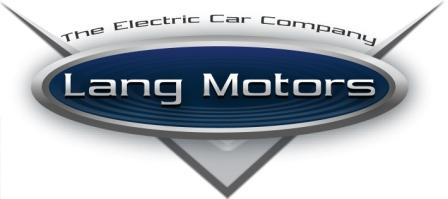
I'm in Moncton, New Brunswick. Today I made a presentation proposing Neighborhood Electric Vehicles (NEVs) to local authorities at City Hall. The City of Moncton has one of the top ten fastest growth rates amongst metropolitan areas in Canada and is also the fastest growing urban region east of Toronto.
The following was my opening:
""For years politicians have been trying to get people out of their cars and into public transportation. Except in heavily populated area they have mostly failed, for several reasons including the inconvenience. An easy solution is green individual travel. Replacing the 2nd or 3rd vehicle in household with a Neighborhood Electric Vehicle (NEV) is one such option.
Hello, my name is Denis Lang, and I represent Lang Motors the electric car company. We are continuing a family tradition in bringing the electric vehicle first in British Columbia, then across Canada.
One of the main goals of Lang Motors initiative is to change our car culture, the way we as individuals and as communities think about cars. Automobile populations are continuing to soar, and cities need options and strategies for reducing emissions. It's about helping drivers make healthy commute choices, and making cities and life more sustainable.
The reason I am before you today is to introduce myself & seek your collaboration.
I’m here to ask the City of Moncton to amend its bylaw to facilitate the operations of Neighborhood Electric Vehicles (NEV). My recommendation for the City of Moncton is to make a decision to advance a new bylaw to facilitate the operations of Neighborhood Electric Vehicles (NEV).
Change is happening before our eyes. More Provinces are encouraging this environment friendly vehicle to operate on their city streets. (ie: British Columbia, Ontario, Quebec)
I am not suggesting that these NEVs be allowed on highways. The NEVs are not designed nor have the protective gear for 400 series highways. But for short city/urban travel, NEVs make perfect sense.
The Province of British Columbia is right to encourage their use. In the United State, 47 States have adopted NEV legislation, and are allowed on 50 klm roads. Since 1998, there have been few reports of accidents or injuries. In the 12-years of documentation there is no report of fatality.
While the NEVs can contribute to a reduction in greenhouse gas emissions, and help cut urban smog, there is another reason to promote them. Canada is an important centre of low-speed-electric- vehicle technology, and we have several innovative firms at the forefront of the business.
The Neighborhood Electric Vehicle (NEV) will not only change the way that you drive, but the way you live. It’s not a car, it’s a cause.
Thank-you for the invitation – Thank-you for your time – and Thank-you for listening.""
Population Greater Moncton: 124,055 - City Owned Street Length: 450 km - The first European settlement in Acadia began in the mid-seventeenth century with the migration of Acadians from Port Royal, Nova Scotia. The Acadians were the first settlers of what is today known as the Greater Moncton area. Acadian pioneers established a village at the bend of the Petitcodiac River, naming it “le Coude”. In June 1755, the capture of Fort Beauséjour by Lieutenant-Colonel Robert Monkton, after whom Moncton is named, triggered the expulsion of Acadians. Large numbers of Loyalists, repatriated Acadians, Irish and other immigrant groups reached the region over the following century, establishing a multi-cultural heritage which is still one of the area’s largest assets. In 1855, the settlement known as “le Coude’’ was incorporated as the Town of Monckton.






No comments:
Post a Comment